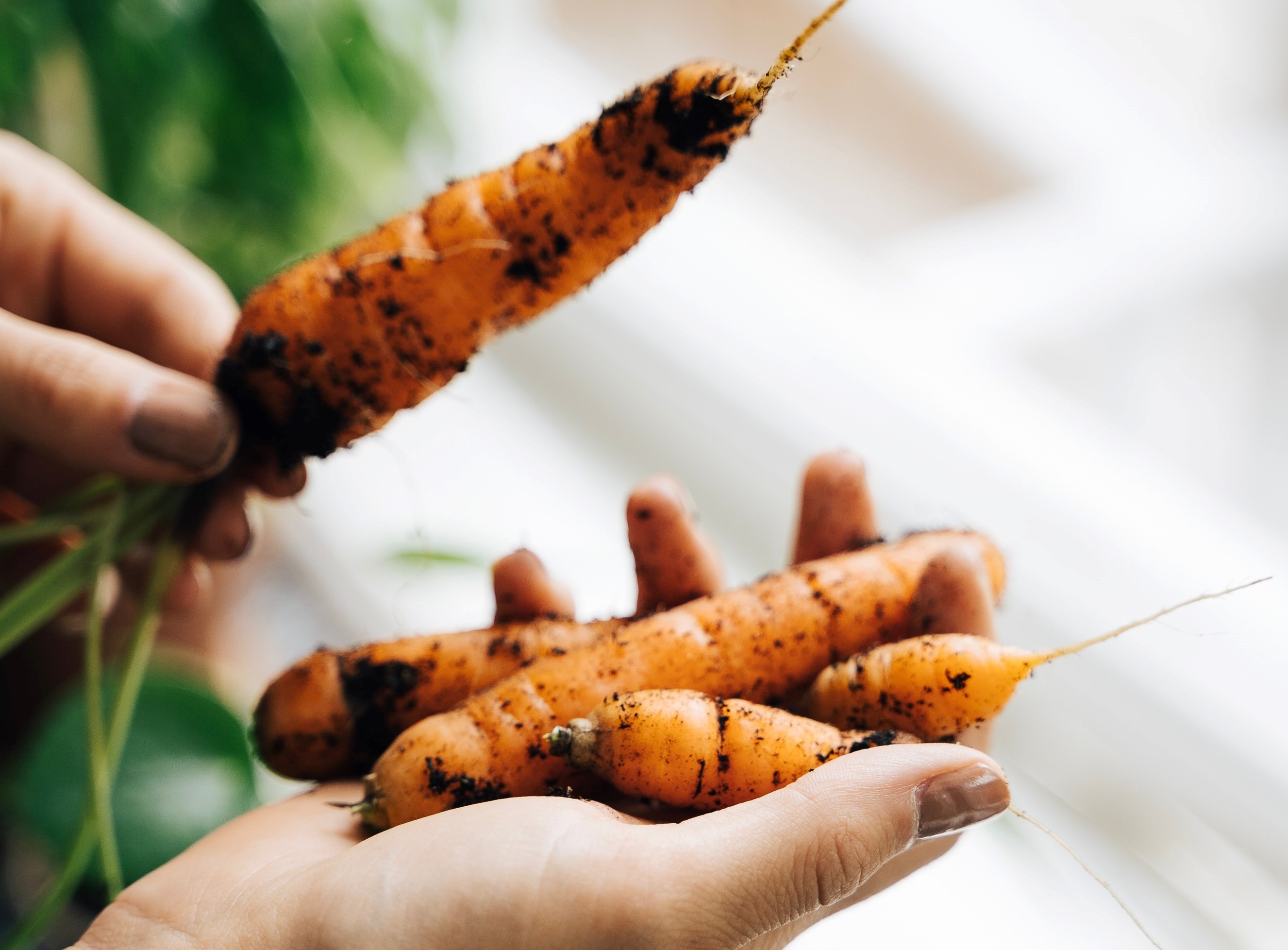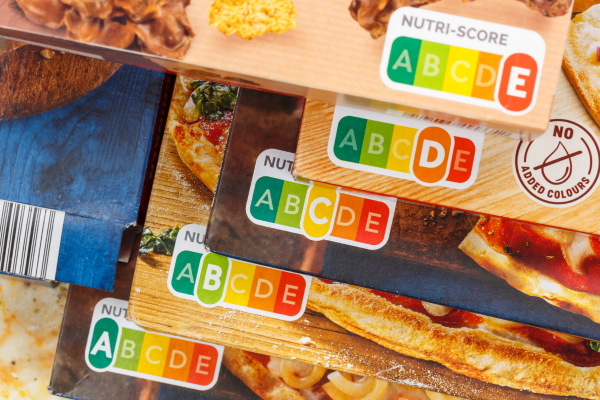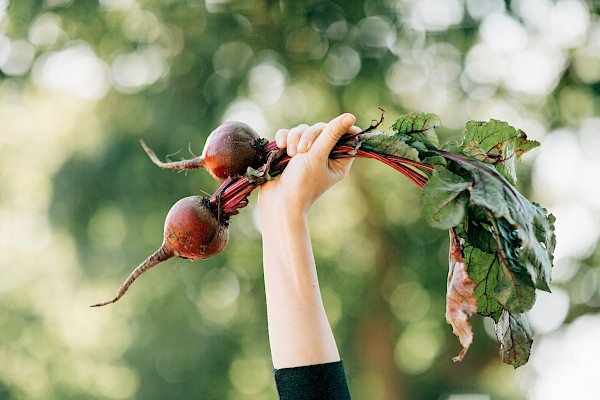Munch on carrots!
Did you know that carrots were used as a medicinal plant in classical civilisation? The carrot, a member of the Umbelliferae family, was not in fact considered a vegetable until the Middle Ages. Today, the carrot – Karotte, Möhre or Rüebli in German – is the world’s favourite vegetable. This also applies for Switzerland, where carrots and tomatoes are at the top of the most consumed vegetables.
Carrots can be eaten fresh or stored for another time. They are grown in Switzerland all year round. The “typical” carrot is orange in colour. However, there are many other varieties that are yellow, white or purple.
In terms of health benefits, the carrot scores with its high content of beta-carotene (provitamin A). It is helpful to know that, the darker the carrot, the more beta-carotene it contains. The sugar content varies with the time of harvesting. Baby carrots contain up to six percent sugar, but varieties that are harvested later in the year have less. As well as beta-carotene, carrots are rich in potassium and are relatively high in carbohydrates compared to other vegetables.
Beta-carotene
As a secondary plant substance, beta-carotene protects the plant and benefits our bodies in many ways. Beta-carotene, an antioxidant, traps free radicals and so acts to reduce oxidative stress, which occurs when the body is flooded with too many free radicals. This may alleviate in-cipient inflammations, meaning the immune system is also given a boost.
100 grams raw carrot contains 6999 µg beta-carotene and 160 mg potassium. If you eat two carrots, you have already consumed one of the recommended five portions of fruit and vegetables per day.
Obtaining nutrients from carrots is quite difficult, so when preparing them, pay attention to the fol-lowing:
- It’s best to cook the carrots until soft or eat them raw.
- Like most vitamins, provitamin A, or beta-carotene, is fat-soluble, meaning it is only re-leased when combined with oil. That is why you should always eat carrots with a little oil.
Carrots are easy to store. Large quantities keep best in boxes in a cool cellar. For smaller quanti-ties to be eaten daily, store them in the fridge, where they will stay fresh for several days. Howev-er, it is better not to keep carrots next to fruit or tomatoes, as they will go off more quickly.
Our recipe idea:
Carrot and almond spread
- 150 g carrots
- 30 g virgin olive oil or coconut oil
- 100 g almonds (whole or ground)
- ½ teaspoon curry powder
- 100 ml vegetable stock
- 1 tablespoon lemon juice
- Salt and pepper
Method: Coarsely grate the carrots. Heat the oil in a frying pan and, stirring constantly, fry the almonds un-til they are a pale golden brown. Then add the carrots and stir over a low heat until almost all liq-uid has evaporated. Stir in the curry powder. Cover with stock and bring to the boil. Turn off the heat. Season with salt and pepper and add lemon juice, then blend everything into a creamy paste. In the end, leave to cool.
The carrot and almond spread will keep for up to 4 days in the fridge in a covered jar. It is ideal for canapés, sandwiches and snacks.
(Source)
 subscribe to newsletter
subscribe to newsletter


